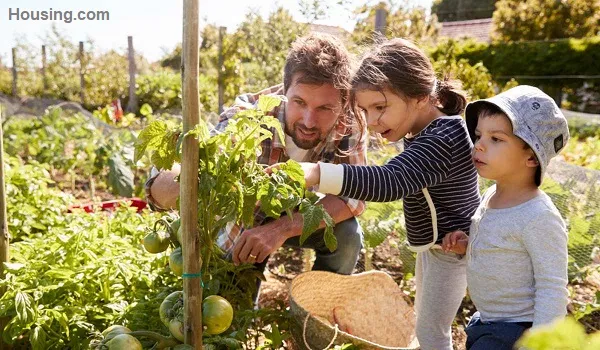10 Things That Should Really Be Taught in School

1 # Mental Health:
While physical education is commonly prioritized, the importance of addressing students’ mental health often goes unnoticed in many schools. However, considering that mental health issues frequently emerge during the school-age years, it is only logical that mental health education should be integrated into the core curriculum.
By incorporating mental health education into the core curriculum, students would have the opportunity to learn essential coping techniques for managing stress, depression, and other challenges they may face. It’s important for teachers to emphasize that mental well-being is just as important as physical health.
Techniques like meditation and mindfulness can be introduced to help students develop healthy strategies for dealing with these issues. Furthermore, open discussions about taboo topics such as addiction and suicide would provide a safe space for students to express their thoughts and learn valuable information about these sensitive subjects.
By normalizing discussions about mental health, students can develop a better understanding and awareness of their own emotional well-being and the importance of seeking support when needed. This approach helps create a more holistic approach to education, fostering healthier and more resilient individuals.

2 # Consent:
Teaching consent is about teaching respect, a value that can and should be instilled at any age. For young children, this could involve introducing concepts like personal boundaries, understanding their own bodies, respecting personal space, and recognizing appropriate touch.
As students grow older, discussions can delve into more complex topics such as relationships, and communication, all within the framework of consent. By addressing these critical subjects through age-appropriate discussions, we can help foster a culture of respect and consent from an early age, promoting healthier relationships and interactions in the future.

3 # Sustainable Living:
Living in a sustainable way involves making choices and taking actions that minimize harm to the environment and ensure a better future for generations to come. It’s about recognizing that our actions today have consequences for tomorrow and striving to manage our needs in a way that is environmentally responsible.
This approach to sustainability encompasses various aspects of our lives, including energy consumption, waste management, transportation, and even our daily habits. It involves reducing our carbon footprint, conserving resources, and promoting eco-friendly practices. By adopting sustainable lifestyles, we can help mitigate climate change, protect ecosystems, and contribute to the overall well-being of the planet.

4 # Survival Skills:
Basic survival skills are not only practical but also have numerous benefits beyond just being able to survive in challenging situations. Learning skills such as building a shelter, making a fire, tying knots, fishing, and foraging for food like berries can be incredibly useful if ever faced with a situation where these skills are necessary. They provide individuals with the knowledge and confidence to handle unexpected circumstances and increase their chances of survival in the outdoors.
Survival skills also teach valuable lessons in adaptability and problem-solving. They require individuals to think critically, make quick decisions, and creatively overcome challenges. These problem-solving abilities and resilience can be applied to other areas of life, including personal and professional situations.
Learning basic survival skills not only equips individuals with practical knowledge but also builds character, instills important values, and fosters personal growth. Whether in the wilderness or in everyday life, these skills can contribute to a person’s overall development and enhance their ability to navigate challenges successfully.

5 # S** Education:
S** education is an essential component of a comprehensive education, and it can be delivered by various professionals such as classroom teachers, school nurses, or outside speakers who specialize in the subject. Starting s** education in fifth grade is a common approach, as it aligns with the age at which students typically begin to experience physical changes and have questions about their bodies.

6 # Human Rights:
Incorporating human rights education into the school curriculum is a powerful tool for creating an inclusive and respectful environment, preventing bullying, and combating discrimination. By teaching students about human rights, diversity, and the importance of respecting others, we can foster a culture of acceptance, empathy, and equality within schools.
Human rights education can play a crucial role in raising awareness about the rights and dignity of every individual. It helps students understand that everyone deserves to be treated with respect, regardless of their race, ethnicity, gender, religion, or any other characteristic. By learning about different cultures, histories, and perspectives, students develop a deeper appreciation for diversity and are more likely to embrace inclusivity.
| Also Read: List of 12 Best Schools in Hyderabad |
Integrating human rights education into the school curriculum also helps foster a sense of social responsibility and active citizenship. It encourages students to engage in critical thinking, dialogue, and respectful debate, enabling them to become agents of positive social change. By learning about human rights violations and the importance of justice, students are motivated to take action to protect the rights of others and promote a fair and equitable society.

7 # Gardening:
Growing food presents a wonderful hands-on opportunity for students to gain insights into the origins of their meals, foster healthier dietary practices, engage in outdoor physical activity, and collaborate toward achieving a common objective. In light of the escalating issue of childhood obesity, there is no more fitting moment than now for schools to incorporate gardening into their educational curriculum.

# 8 Cooking:
When grade-school students transition to university with the sole culinary skill of making toast, it raises concerns. Much like gardening, cooking offers a valuable avenue to understand food, nutrition, and dietary choices.
Moreover, it’s a practical skill that students can apply throughout their lifetime. Given that not all students receive cooking lessons at home, it becomes imperative for schools to provide instruction on culinary skills to ensure students are well-equipped in this essential life area.

9 # First Aid:
The acquisition of first-aid skills represents a life-saving capability that children can carry with them throughout their lifetime. When integrated into the school curriculum, these essential skills would empower students to assist their peers and family members effectively during unforeseen emergencies.
| Also Check: Easy & Hard Maze Game Printable PDF for Kids |
Teaching first-aid in schools fosters a culture of preparedness and caring within the school community, emphasizing the importance of helping one another in times of need. These valuable lessons extend far beyond the classroom, shaping responsible and compassionate individuals who are ready to make a positive impact on the world around them.

10 # Voting:
Lastly, it’s important to note that voter turnout remains a significant concern, with some regions, such as Gujarat, experiencing voter participation rates as low as 60 percent in recent Gujarat Assembly polls.
Addressing this issue and fostering civic engagement among students is crucial for the future of our democracy, ensuring that the next generation is informed, motivated, and active in shaping the collective future through their votes.
11 # Media Literacy: Bonus Point
In the era of fake news, the significance of teaching critical thinking and media literacy in schools is so much more important. These teachings are not only essential for academic success but also for making informed decisions in an increasingly complex and interconnected world.












 Previous Post
Previous Post